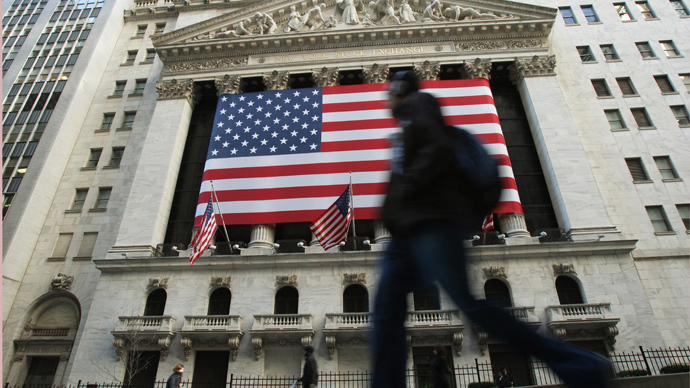Another unwinnable war a losing battle for US economy

Another war will make a bad situation much worse for the US, Gerald Celente, publisher of Trends Journal, told RT. The US is already squandering resources fighting never-ending and unwinnable wars, and so the nation is going down economically, he added.
RT:The financial picture looks rather grim for the US in the long run. How could Washington let this happen?
Gerald Celente: Well, it's war. It's what General Dwight D. Eisenhower warned the American people of. This is a 5 star general, supreme commander of the allied forces during WWII, and a two-term president, as he was leaving office, warned the American people that the military industrial complex was robbing the nation of the genius of the scientists, the sweat of the laborers and the future of the children. And that's what's happened combined with the globalization, which really is not a globalization at all, it is multi nationalization.
So the country has gone into two spheres, one is the banking sphere where money is being concentrated on the top, and this is not hyperbolic - a study just came out a few days ago showing that a mere 400 people in the US have $2 trillion worth of the nation’s wealth, which by the way is bigger than the GDP of places like Mexico and Italy. And on the other hand we are squandering our resources fighting all of these unwinnable wars that never end, and so the nation is going down economically. You don't have to be a genius to figure it out, all you have to do is look at history.
RT:You mentioned the famous Eisenhower’s comments. The military budget continues to expand and the US is considering another attack overseas in Syria. Can this type of activity be sustained economically?
GC: No, it can't. What's going on now cannot be sustained economically. You have to look at the facts of what's going on here in the States. The US is showing studies now that the gap between the rich and the poor is the widest since 1913, the gilded age. I'm not making these numbers up. 97% of the jobs that have been created this year are part-time jobs. So the war will make a very bad situation much worse.

RT:We saw what happened during the financial crisis, are the American people going to have to fork out more cash to cover this debt sooner or later?
GC: Well, the Americans are already around $136,000 per person in debt from the $16.7 trillion that we have. So yes, they are going to keep taxing the people. Just as they did as the Roman Empire kept falling - they taxed the people more. And that's not only in the States by the way, look at what they did through Europe - they called it austerity measures, they cut your pensions, benefits and raise your taxes. So it's a way of keeping it going until the people revolt.
RT:Clinton left a budget surplus - how much responsibility does George W. Bush bear given that he cut taxes while launching wars in Afghanistan and Iraq, kind of unprecedented, isn’t it?
GC: Yes, but again let's go back to Clinton. I was writing my book Trends 2000 in the mid-1990s, so I was very in tune with what was going on. It was the Dot Com Boom, that's why we were able to sustain growth through those days, and of course then we had the Dot Com Bubble. So when Bush came in the nation was in a recession, and then 9/11 happened. And then they began to lower interest rates to 46 year lows, that's what juiced up the economy. So as the economy was being artificially juiced up, yes, the tax cuts made it seem as though the two could be sustainable, and of course as we found out with the panic of 2008 they were not.
The statements, views and opinions expressed in this column are solely those of the author and do not necessarily represent those of RT.












